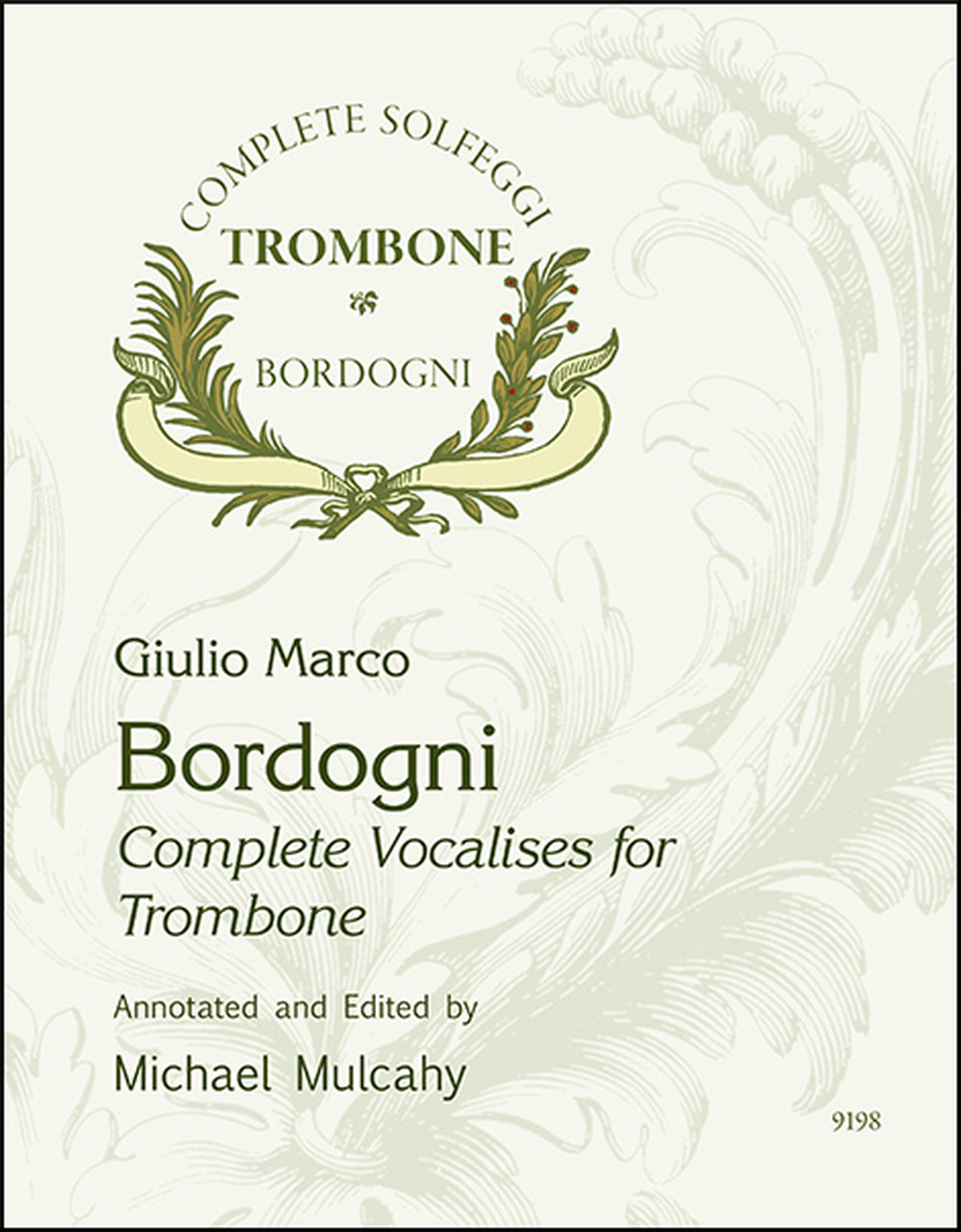Complete Vocalises for Trombone: A Review
 Bordogni, Giulio Marco. Complete Vocalises for Trombone, annotated and edited by Michael Mulcahy. Encore Music Publishers Maple City, MI, 2008. 200 pages, spiral bound. ISBN 978-0800004064.
Bordogni, Giulio Marco. Complete Vocalises for Trombone, annotated and edited by Michael Mulcahy. Encore Music Publishers Maple City, MI, 2008. 200 pages, spiral bound. ISBN 978-0800004064.
I would wager that every curious trombonist out there has played a few of the Giulio Marco Bordogni vocalises (commonly referred to as "Rochut's," after French trombonist and arranger Joannés Rochut). Most can likely remember their introduction to the fabled melodies, as they are tied to legato techniques and, hopefully, lyrical musicianship. Jazz music, and legendary soloist Curtis Fuller, drew me to the trombone at age 17 and in my scramble to figure out how to play this challenging instrument, I found myself in the office of the renowned trombone pedagogue, Dr. John Drew staring at Bordogni No. 1. Despite playing "stiff as a board" and obviously sight-reading this well-known work, it is a memory that I prize in my catalogue of musical discovery. Dr. Drew had me stand tall, sight-sing, relax, blow freely, and make the most of the line and phrase. It is something I continue do every day as a professional trombonist and educator, which is why I am thrilled to see this music of Bordogni collated and annotated by the eminent performer and professor Michael Mulcahy.
It is worth the price of the book to read Mulcahy's persuasive insights to evergreen performance topics such as legato playing, interpretation, and ornamentation. He reminds us early on about one of the easily forgotten pillars of studying these works - the "why." Why do so many trombonists revere these pieces? Michael has the answer(s) for you along with the historical context. But, Mulcahy's approach in setting up this compilation isn't brimming with dogma. Quite the contrary, he welcomes several approaches that help achieve the desired result. I enjoyed learning of the influence that the all-time champion of ballads Tommy Dorsey has employed upon Mulcahy's concept. Like many personable and effective teachers, he drops several quotes that are well worth remembering, and I don't wish to spoil those here for the reader.
Moving on to the vocalises themselves, there are two things that especially stand out. This first is that Mulcahy includes four varying examples of his dynamic interpretations and reasonings for them, along with the original keys of the pieces before transposition. It strikes me as an effective way to incorporate a coaching example into this text. Lastly is the convenience of having all the Bordogni vocalises in one compendium rather than the three Rochut volumes. And, can we get a round of applause for spiral bound editions? "Holla!"
I am very pleased with this edition of Bordogni's Complete Vocalises for Trombone. For those not familiar with Michael Mulcahy, have a quick search online to learn of his impressive career, and you will understand why he is perfectly suited to offer this update to this revered material. Highly recommended!
![]() For a rich history of Joannés Rochut, the performer and pedagogue who first transcribed the Bordogni vocalises for trombonists, readers are encouraged to read Doug Yeo's article, Joannés Rochut, the Boston Symphony, and his trombone.
For a rich history of Joannés Rochut, the performer and pedagogue who first transcribed the Bordogni vocalises for trombonists, readers are encouraged to read Doug Yeo's article, Joannés Rochut, the Boston Symphony, and his trombone.
